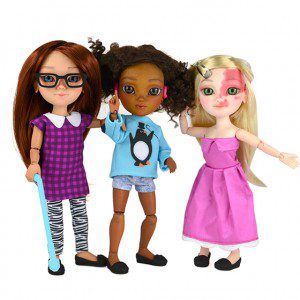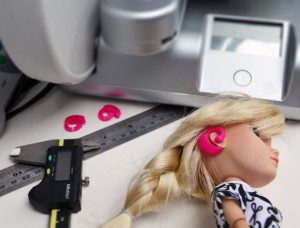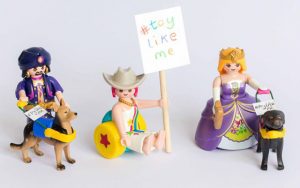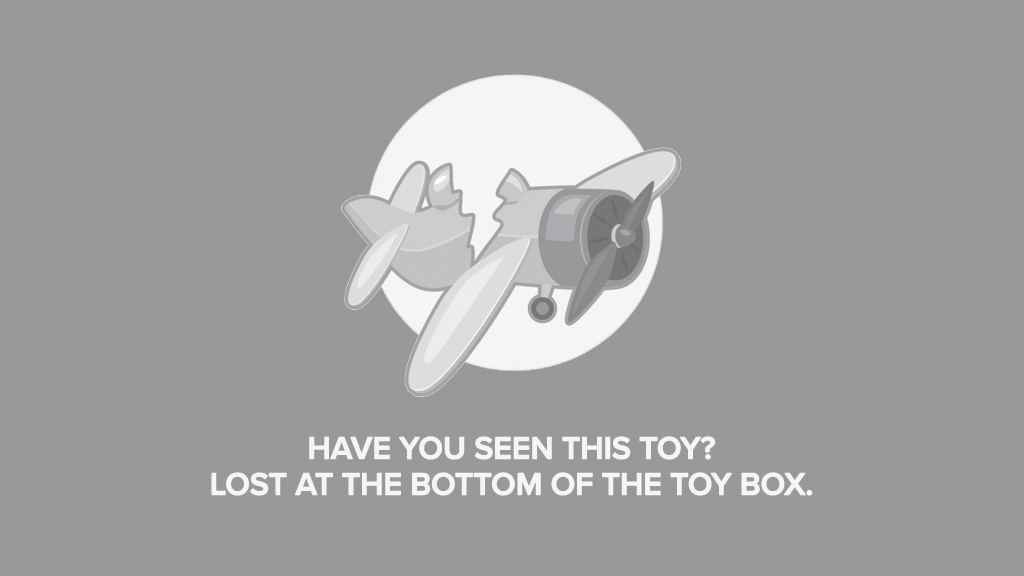 MakieLab has just made the first step in what I hope will be a great leap for the entire toy industry.
MakieLab has just made the first step in what I hope will be a great leap for the entire toy industry.
The London-based indie toy developer is the first company to respond directly to a viral social media campaign, #ToysLikeMe. The company has created a selection of Makie doll-size impairment aids and accessories, including hearing aids and walking sticks. It—hands down—has got to be one of the greatest things I’ve ever heard of, and all toy companies should follow suit.
Kids and parents can currently build their own fully-customized 10-inch Makie doll at mymakie.com, with a choice of gender, skin color, eye color, hair style, and clothing. The company brought its dolls to the U.S. last November, making their debut across the pond at the Chicago Toy & Game Fair. Makies are the world’s first safety-certified, 3-D printed dolls with retail placement.
And now, that same 3-D printing technology has helped Makie create the new dolls just days after the social media campaign launched. In a press release, Makie credits the technology for its quick response to this call for action.
 “It’s fantastic that our supercharged design and manufacturing process means we can respond to a need that’s not met by traditional toy companies. We’re hoping to make some kids—and their parents!—really happy with these inclusive accessories,” MakieLab CTO Matthew Wiggins says.
“It’s fantastic that our supercharged design and manufacturing process means we can respond to a need that’s not met by traditional toy companies. We’re hoping to make some kids—and their parents!—really happy with these inclusive accessories,” MakieLab CTO Matthew Wiggins says.
MakieLab designers are currently working on a new 3-D printed toy wheelchair in addition to the hearing and walking aids.
But why is this so important? #ToyLikeMe, the social media campaign on Twitter and Facebook created by deaf moms, is challenging toy companies to have a greater positive representation of disabilities in toys. The movement has reached an audience of more than 50,000 people since it launched last week. This isn’t the first campaign for this cause, and it won’t be the last until dolls and toys reflecting disabilities are regular items we see on the toy shelves.
The group has created toy makeovers, taking existing products of big-name companies such as Playmobil and Lego and giving them additional features, such as small guide dogs, wheelchairs, hearing aids, and stomach tubes. This way, it is calling out and challenging these companies to make their products more inclusive to all kids.

On Wednesday, Toy Like Me created a Change.org petition for Playmobil to urge the company to, “Please put some fun and sparkly into disability toybox representation and help generations of kids (both with and without disabilities) grow up with more positive attitudes to human difference!” Toy Like Me is almost taunting the company on its Facebook page, telling Playmobil that, “If you won’t come out and play, we will all have to use our shouty outside voices, inside!”
Another existing campaign on Change.org has been petitioning the Walt Disney Company to “Create A Princess With A Disability.” This petition has just over 9,300 signatures, close to its 10,000 goal. I wholeheartedly support all of these campaigns.
Although MakieLab is a huge initial step in achieving its ultimate goal, Toy Like Me posted on its Facebook page, “Toy Like Me won’t rest. If small companies like Makies can respond, what are the big girls and boys doing? Come on Lego, Playmobil, Mattel, Barbie—770,000 UK children with disabilities (and millions more beyond) need positive toy box representation now!”
Now MakieLab is urging other major toy companies, such as Mattel, Hasbro, and MGA Entertainment, to do the same:
Thank you all so much for all the delight & RTs for #toylikeme! Now the world needs Mattel, Hasbro & MGA to follow… pic.twitter.com/2cDUeWQG5p
— Makies! (@OfficialMakies) May 18, 2015
American Girl, a subsidiary of Mattel, already offers a wheelchair accessory and hearing aids. The company also provides an 18-inch doll without hair in a variety of doll faces, skin tones, and eye colors. But is that enough?
At the end of 2013, then 10-year-old Melissa Shang created a petition on Change.org to Jean Mackenzie, the president of American Girl and executive vice president of Mattel. In the petition, Melissa wrote that she has Charcot-Marie-Tooth, a form of muscular dystrophy. She is a huge fan of American Girl; she has read all of the books and has even visited the American Girl palace in New York City. Her favorite part of the company is the Girl of the Year.
“Girls of the Year have helped me understand how it feels to be someone else,” Shang wrote in the petition. “However, none of the American Girl Girls of the year are like me. None of them have a disability… For once, I don’t want to be invisible or a side character that that the main American Girl has to help: I want other girls to know what it’s like to be me, through a disabled American Girl’s story.”
If that hasn’t touched your heart or made you feel some type of way by now, then I don’t know what will. A company that prides itself on diversity and history should be well aware that those stories of diversity also includes kids with disabilities. Having a Doll of the Year with would spark something beautiful and inspirational within children with or without disabilities. More than 145,000 people have since signed the petition. (Now Melissa is 11 years old and is writing a chapter book about a girl with muscular dystrophy who loves to sing. I’m rooting for you, Melissa, and I hope everyone in the world sees you as the superstar that you are).
As adults, I think we can sometimes forget how hard it was growing up. The products that kids play with have an incredibly profound effect on how they grow up. The demand is there, so companies should be taking advantage of all of this enthusiasm and activism. Kids and parents are taking action, and in my eyes, there’s no reason for these companies to not respond with praise. Maybe calling them out so intensely isn’t the right way to go, but it’s certainly creating attention.
Sure, it was super easy for Makies to jump on the opportunity due to the 3-D printing, but companies who are not 3-D printing-based have no excuse to not be responding to these viral campaigns. All the public needs to see for now is that larger companies are trying or initially attempting to get the ball rolling. Kids just want to play with toys that are just like them. There’s no better time than right now. So, everyone else, what are you waiting for? Tick tock.
For more commentary from Maddie, check back often. Views expressed in this column are solely those of the author and do not necessarily reflect the views of The Toy Book as a whole. We hope that you will share your comments and feedback below. Until next time!

